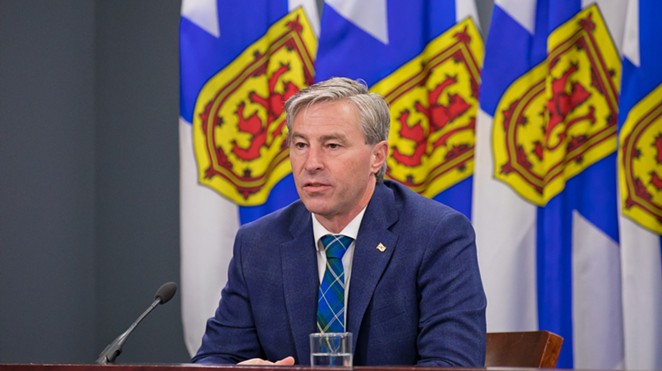Speculation of a Saturday snap election reaches a fever pitch

Update: The election was called on Sunday, rather than Saturday; election day is Tuesday November 26.
Tim Houston and the PC Party have been busy this past week.
From announcing an HST reduction of 1% in 2025, to accepting a drifting Liberal MLA into the party, the premier seems to be gearing up for something. And while he’s denied that he’s even thinking about an election, Liberal leader Zach Churchill claims Houston has made public comments that he intends to make the call this Saturday, Oct. 26.
The central question is: Why?
The Tories have a majority—bolstered up to 34 out of 55 seats with Fred Tilley switching sides—and one of Houston’s campaign promises was to ensure fixed election dates. As Houston himself said in an announcement back in 2021, “Having a fixed election date will mean predictability and transparency and it will limit any perceived advantage by the government to control the timing of the election.” It was the first law his government introduced, with the legislation passing in 2021. However, this law doesn’t mean he can’t call a snap election.
As CBC reported in June 2024, Houston has backtracked on his motivation. While the law set July 15, 2025 as the next election date, with future elections set to take place on the third Tuesday of July every four years, Houston has since told reporters, “The election is when the election is.” He also claimed waiting for that election date would be “selfish.”
Given the premier’s statements, it’s easy to tell that he’s gotten comfortable with the idea of calling an election any time he wants. But that central question still stands—why, when he already has a majority and is passing bills uninterrupted, does he want to call an election that could see the political effectiveness of his party curbed?
It’s because he thinks it won’t.
Houston and the Tories carry momentum. A Narrative Research poll from June 2024 shows that while a majority of those polled were dissatisfied with the Tories, 50% of them would still vote for them if an election was called. In comparison, 23% would vote Liberal and 22% would vote NDP, while 3% would vote Green.
And while polls aren’t everything, that big 27-point lead could mean a major election win for Houston, a promise of power that must be attractive. Even if his party simply held its current majority and didn’t gain more seats, it would mean another four years to continue with what he’s doing, such as making evictions easier for landlords or signing $950,000 contracts with Sobeys for a “buy local” program.
In an interview with CTV, Liberal leader Churchill called what Houston intends to do “political opportunism.” We can call a lot of what politicians do opportunism, but the decision to backtrack on the first law passed by your government presumably because you’re polling well seems to fit the definition.



